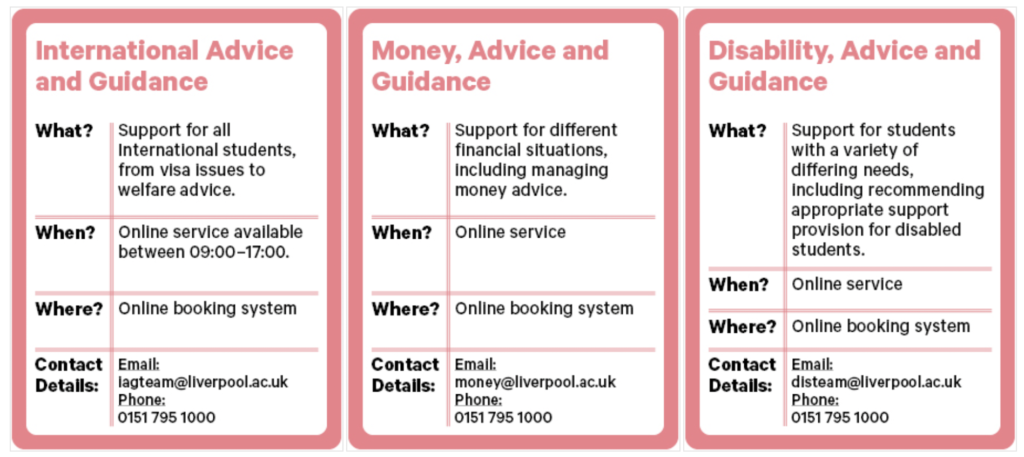6th November 2023
Listen
Listen

Mental Health and Wellbeing is in the spotlight more than ever. We have all struggled, or know people who have struggled, over lockdown. Taking care of your mental wellbeing can be hard, especially at uni! We caught up with Agnes Laetitia Owondja and Shantanu Kundu about why mental health is important and Black History Month is a key time to raise awareness within the black community.
Agnes is a second year Philosophy student, who lives in Derby and is originally from Cameroon. She is the Welfare Officer on the ACS committee, focusing on black mental health and wants you to understand how to best look after yourself and where to turn for help.
My role is very important because mental wellbeing is a large reason why many people struggle at uni, so it is important that I try and promote healthy mental wellbeing and stress-free space. People should join the ACS because we celebrate culture and inclusivity and we just want everyone to socialise and have a good time.
Agnes Laetitia Owondja
Shantanu is a student doctor from the Midlands, who founded the Be Free Campaign. The charity is focused on raising awareness of mental health, mental wellbeing and the stigma that stops many people from getting the help that they need.
Mental health has always been a passion for me. Helping to raise awareness of the stigma behind mental health, promoting wellbeing and improving access to health services has been something that I have wanted to do for the last few years.
Shantanu Kundu
We have seen a rise in communication around mental health but how do we know what it is and if ours has been affected? Your mental health includes your emotional, psychological and social wellbeing. This can be how you think and feel or how you act when making choices, talking to people or handling stress.
It is normal for people to experience mental health problems over the course of their life and certain things can make you feel less well, such as stress, loss, illness and trauma. Some people will have temporary phases of low mental wellbeing but others have lifelong mental health problems such as depression, anxiety or personality disorders.
Mental health is something that we all have and how “healthy” it is fluctuates, just like our physical health. Mental health and wellbeing is on a continuum. We can go up and down this continuum and recognising that we need support is, for me, a human right. We’ve seen a massive mental health crisis and the pandemic has worsened this.
Shantanu Kundu
If you are developing a mental health problem or entering a period of low mental wellbeing, your thinking, mood and behaviour could be affected. Some things to look out for are:
In the most part, the stigma surrounding mental health is dissipating somewhat, especially in our generation. However, it is important to keep talking about it and keeping it in the open. Encouraging people to speak about their own mental health struggles has meant: people feel more accepted in society, have gained a better knowledge and awareness of mental health disorders and don’t feel fearful of sharing mental health issues – allowing people to more freely access the support they need.
Mental health is often overlooked, especially in the black community, as many older generation members don’t even know what mental health is or believe that it exists. It is important that as a community, we have an understanding of it and know what to do if our mental health ever gets bad, so that we can get back to a happy mental space.
Agnes Laetitia Owondja
The black community in particular face large amounts of stigma against mental health. We need to improve our ability to research mental health in BAME communities, in more efficient and productive ways, and the best way we can start that is talking about mental health and understanding that it’s okay to reach out for help. The more data we have, the more effective mental health services can become.
Shantanu Kundu
The society for Black and Ethnic Minority medics & other healthcare students in Liverpool, BME Medics Liverpool, hosted a talk about Mental Wellbeing and Mental Health in the Black Community on the 27th October, with a panel of professional and informed speakers: Dr Julia Darko, Dr Jermaine Bamfo and Kadra Abdinasir.
Uni can be particularly triggering for mental health problems. Stress over deadlines, anxiety about your grades and feeling lonely or removed when moving away from family and friends. Last year, we posted an article about eating well for mental health and managing your mental wellbeing through Covid. We asked Agnes for her advice:
My key pieces of advice to remain relaxed and happy at uni are:
– Remember to have a social life, join societies and make friends
– Keep busy
– Have good time management and plan your week so you’re not overwhelmed
– Communicate – if you’re struggling contact your lecturers or academic advisers because they are there to help
– Manage your finances – create a weekly REALISTIC budget so you don’t overspend and worry about money.
Agnes Laetitia Owondja
Access support via the NHS here or in an emergency, contact Samaritans 24 hours a day, 365 days a year – call 116 123 (free from any phone), email jo@samaritans.org or visit in person.
Wellbeing Advisors at the uni offer initial assessments and refer you on if you meet requirements. To access this service – call 0151 795 1000 (Monday – Friday, 9am to 5pm) or email advice@liverpool.ac.uk.
The Guild offer a host of guidance on mental health. Advice on external issues that can cause stress and put additional strain on your mental wellbeing can be found at:

Cover Photo by Mental Health America (MHA) from Pexels